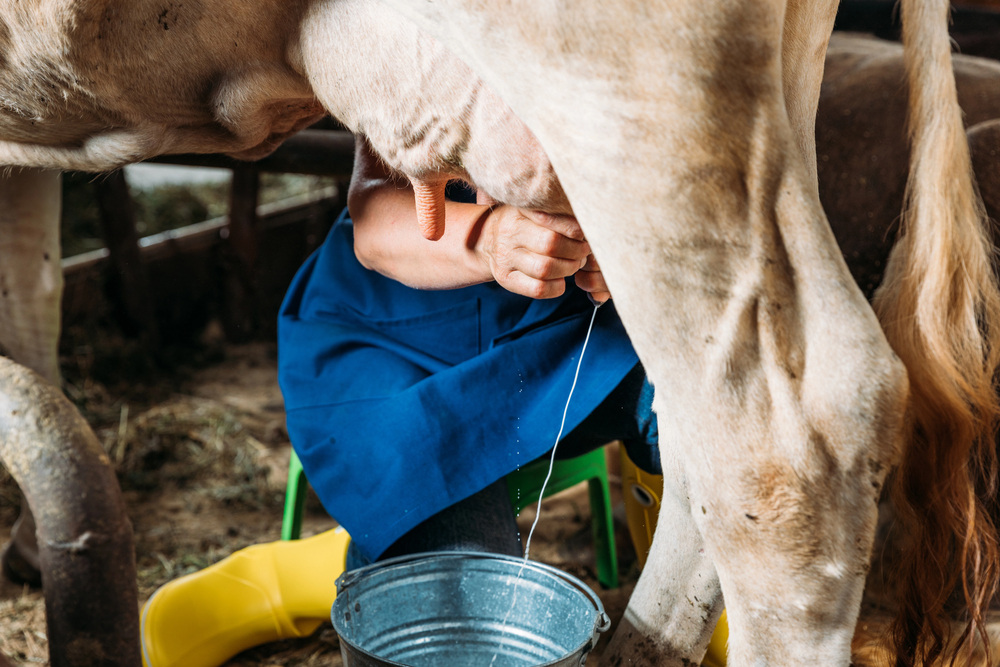Change language:
Filipino workers step in to milk cows in a small Hungarian village

In the Hungarian village of Homokszentgyörgy, Filipino workers have stepped in to fill crucial roles at a dairy farm, caring for cows and handling demanding year-round tasks. With local interest in agricultural jobs dwindling, the farm turned to foreign labour through an agency, providing accommodation and integrating the workers into the community. Despite the challenges, both the villagers and the workers have formed a positive relationship, showcasing a unique solution to rural Hungary’s labour shortages.
Filipino workers and locals get on well
In the small Hungarian village of Homokszentgyörgy (with a population of around 900), Filipino workers have taken up a surprising role—milking cows and caring for livestock at a local dairy farm. While the presence of foreign labourers in industrial sectors is now commonplace in Hungary, seeing them in rural agricultural roles marks a significant shift.
According to the report of Sonline, the six Filipino workers live in a refurbished house on Petőfi Street, provided by their employer. Despite not speaking Hungarian, they have integrated into the village community with their polite demeanour and cheerful greetings, endearing themselves to neighbours like Mária Serdültné Kuti, who praises their manners and finds no issue with their presence. The villagers, however, recognise the necessity of hiring foreign workers, citing the lack of interest among locals in such demanding jobs.

According to Homokszentgyörgy’s mayor, János Czinke, the positions at the dairy were likely advertised locally, but either there were no applicants, or they lacked the necessary qualifications. He also notes that foreign workers often accept lower wages, which might make them more attractive to employers.
The need for year-round labour is crucial
At the Bos-Frucht Agrárszövetkezet farm, which manages 700 Holstein Friesian cows and 600 hectares of land, the need for reliable year-round labour is critical. President Barna Egyed explains that maintaining a livestock operation requires dedication every day of the year, from feeding and cleaning to handling veterinary procedures and regular milking schedules. Unfortunately, the local workforce has dwindled, with few young, motivated individuals willing to take on such demanding work.
The Filipino workers, most of whom have prior experience in animal husbandry, were recruited through an employment agency. They quickly adapted to the farm’s rigorous schedule and formed a positive impression of the village. Justine Neil Delgado, one of the workers, shares their perspective with Sonline:
“The work is hard, but we manage. The local people are kind and respectful, and we appreciate them.”
Work and rest: The life of the Filipino workers in Homokszentgyörgy
Life at their accommodation reflects their simplicity and adaptability. With bicycles in the yard and laundry drying on the fence, the Filipinos focus on their work and rest rather than venturing into the village. The cold Hungarian November is a stark contrast to their tropical home, but they’ve adjusted to their new surroundings.
This situation underscores broader trends in Hungary’s labour market, where an ageing population and a lack of interest in certain jobs are paving the way for foreign workers to fill essential roles in unexpected places.
Read also:
- Will employment of guest workers in Hungary face further restrictions soon?
- Food courier crisis in Hungary: Labour shortage and opportunities for foreigners with KATA tax revisions
- BREAKING! Three-year minimum wage agreement set to impact everyone’s pay in Hungary 🔄
Featured image: illustration, depositphotos.com








I hope they are not hand milking 700 cows as the photo suggests. Milking machines have been around for a long time. : )
Traitors replacing the native population to line their pockets! There is no such thing as labour shortage, just greedy cunts not willing to pay enough for locals to live on.
@Akurvaanyadu – our Politicians allow in guest workers for a reason. I am sure it is for all the right reasons!
https://www.politico.eu/article/fortress-hungary-surprising-answer-population-crisis-migration/